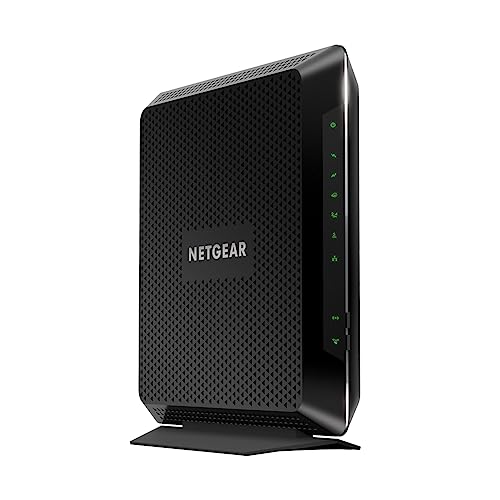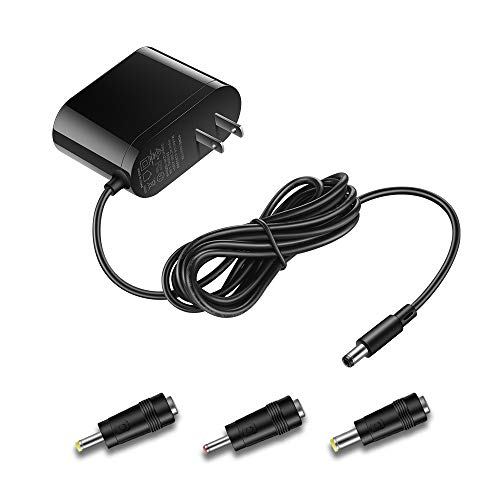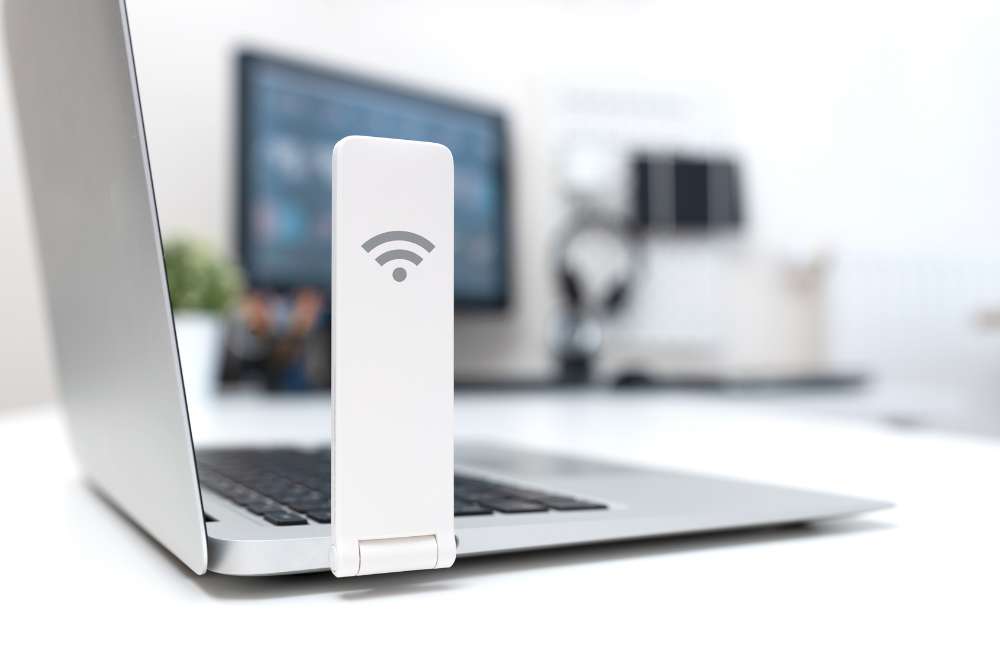In an era where home security is paramount, wireless security cameras have emerged as indispensable tools for safeguarding our properties and loved ones. These cameras offer convenience, flexibility, and peace of mind by allowing us to monitor our homes remotely.
However, a common question that arises is do wireless security cameras need high speed WiFi for optimal performance.
The short answer to this is, it depends.
In this article, we’ll delve into this topic to understand the importance of WiFi connectivity for wireless security cameras and explore the factors that may influence the need for high speed WiFi.
- Compatible with major cable internet providers including Xfinity, Spectrum, Cox and more. NOT compatible...
- [Compatibility] 12V Power Supply Adapter Compatible with Netgear, Linksys, Asus,Motorola, Motorola/Arris...
Understanding Wireless Security Cameras

Wireless security cameras, also known as WiFi cameras or IP cameras, are surveillance cameras that connect to a WiFi network for data transmission. Unlike traditional wired cameras, which require physical connections to a recording device, wireless security cameras transmit data wirelessly, providing greater flexibility in installation and placement. These cameras typically consist of a camera lens, image sensor, microphone (for audio recording), and transmitter/receiver unit.
One of the key components of wireless security cameras is their ability to connect to a WiFi network, enabling remote access and monitoring of camera feeds. This connection allows you to view live video streams, receive motion detection alerts, and access recorded footage from your smartphones, tablets, or computers. Additionally, many wireless security cameras offer cloud storage options, allowing you to store and access footage remotely via the Internet.
Overall, wireless security cameras play a crucial role in modern surveillance systems, offering convenience, flexibility, and peace of mind to homeowners. However, the performance of these cameras relies heavily on the quality of the WiFi network to which they are connected.
In the following sections, we’ll explore the importance of WiFi for wireless security cameras and examine the impact of WiFi speed on their performance.
The Importance of WiFi for Wireless Security Cameras
While wireless security cameras offer convenience and flexibility, they are heavily reliant on a stable WiFi connection for optimal performance. The WiFi network serves as the backbone for transmitting video and audio data from the cameras to the connected devices, such as smartphones or computers.
As such, the quality and reliability of the WiFi signal directly impacts the functionality of the cameras and the user experience.
A stable WiFi connection ensures seamless streaming of live video feeds, smooth playback of recorded footage, and timely receipt of motion detection alerts. Without a reliable WiFi connection, users may experience buffering, lagging, or interruptions in video transmission, compromising the effectiveness of the surveillance system.
Additionally, a weak WiFi signal may result in dropped connections or lost footage, leaving blind spots in the monitoring coverage.
Moreover, the performance of wireless security cameras can be affected by various factors, including WiFi signal strength, network congestion, interference from other electronic devices, and distance from the router.
For example, cameras located far from the router or in areas with thick walls or obstacles may experience weaker WiFi signals, leading to decreased video quality and reliability. Similarly, crowded WiFi channels or interference from neighboring networks can degrade the performance of wireless security cameras.
In short, a stable and robust WiFi connection is essential for ensuring the optimal performance of wireless security cameras. You should take steps to optimize your WiFi networks, such as positioning the router strategically, using WiFi extenders or repeaters, and minimizing interference from other devices, to enhance the reliability and effectiveness of your surveillance systems.
Factors Affecting the Need for High Speed WiFi
While a stable WiFi connection is crucial for wireless security cameras, the need for high speed WiFi depends on various factors, including the resolution of the camera, the number of cameras in the system, and the desired functionality.
Higher-resolution cameras, such as those offering 1080p or 4K video quality, require more bandwidth to transmit video data compared to lower-resolution cameras. Similarly, systems with multiple cameras may place higher demands on the WiFi network, especially if they are streaming simultaneous video feeds or recording continuously.
Another factor to consider is the use of advanced features such as motion tracking, facial recognition, or cloud storage, which may require additional bandwidth to operate effectively.
For example, cameras with motion tracking capabilities rely on continuous data transmission to detect and follow moving objects, while cameras with cloud storage options upload video footage to remote servers for safekeeping. These features can increase the workload on the WiFi network and may benefit from higher-speed connections to ensure smooth operation.
Factors Influencing WiFi Speed Requirements for Wireless Security Cameras
Several factors can influence the WiFi speed requirements for wireless security cameras, including:
- Video Resolution: Higher-resolution cameras require more bandwidth to transmit video data. Cameras that capture footage in 1080p or 4K resolution will need faster WiFi speeds to ensure smooth and clear video streaming without buffering or pixelation.
- Number of Cameras: The more cameras you have connected to your WiFi network, the greater the strain on your network bandwidth. Multiple cameras transmitting high-definition video simultaneously will require higher WiFi speeds to maintain optimal performance.
- Frame Rate: Cameras with higher frame rates capture more frames per second, resulting in smoother motion and more detailed footage. However, higher frame rates also require more bandwidth to transmit the increased amount of data, necessitating faster WiFi speeds.
- Compression Technology: Some wireless security cameras use compression technology to reduce the size of video files for transmission over the network. While compression can help conserve bandwidth, it may also affect video quality and clarity, especially during fast-motion scenes.
- Distance from Router: The distance between your wireless security cameras and your WiFi router can impact signal strength and WiFi speed. Cameras located far from the router may experience slower connection speeds and more frequent signal dropouts, requiring higher WiFi speeds to maintain reliable connectivity.
Do Wireless Security Cameras Need High Speed WiFi?
While high speed WiFi can enhance the performance of wireless security cameras, it may not always be necessary, depending on your specific needs and circumstances. Here are some factors to consider:
- Video Quality Requirements: If you’re primarily concerned with monitoring general activity or deterring potential intruders, you may not need ultra-high-definition video quality. Lower-resolution cameras may suffice, reducing the WiFi speed requirements.
- Number of Cameras: If you have a small number of cameras or if they are spread out across different areas of your home, you may be able to manage with lower WiFi speeds. However, larger installations with multiple cameras may benefit from faster WiFi speeds to accommodate the increased data traffic.
- Internet Usage Patterns: Consider your household’s overall internet usage patterns and the bandwidth demands of other connected devices. If you frequently stream video content, play online games, or engage in video conferencing, you may need higher WiFi speeds to ensure a smooth and uninterrupted experience for all devices.
- Future Expansion: Anticipate future growth and expansion of your surveillance system. If you plan to add more cameras or upgrade to higher-resolution models in the future, investing in high speed WiFi infrastructure now can help future-proof your setup and ensure compatibility with new devices.
Conclusion
While high speed WiFi can certainly enhance the performance of wireless security cameras, it may not always be a strict requirement. The WiFi speed needed for optimal camera performance depends on various factors, including video resolution, the number of cameras, compression technology, and your specific usage needs. Before investing in high-speed WiFi infrastructure, carefully assess your requirements and consider factors such as video quality, internet usage patterns, and future expansion plans.
By taking a strategic approach to WiFi planning, you can ensure the reliable and efficient operation of your wireless security camera system, providing enhanced security and peace of mind for your home or business.





